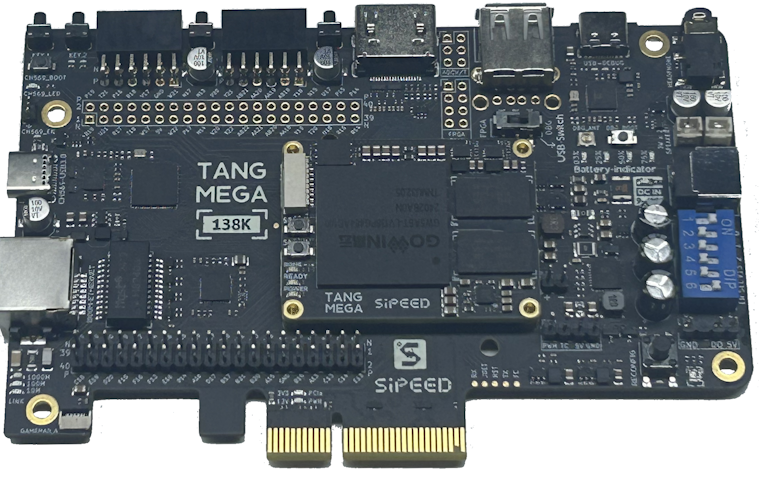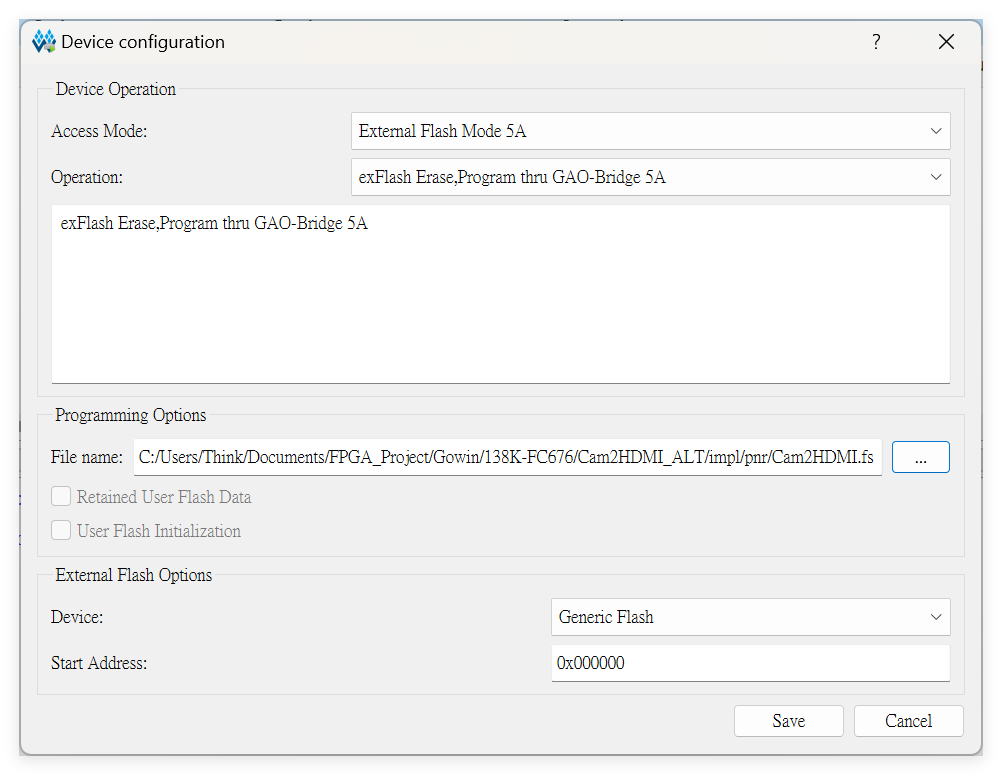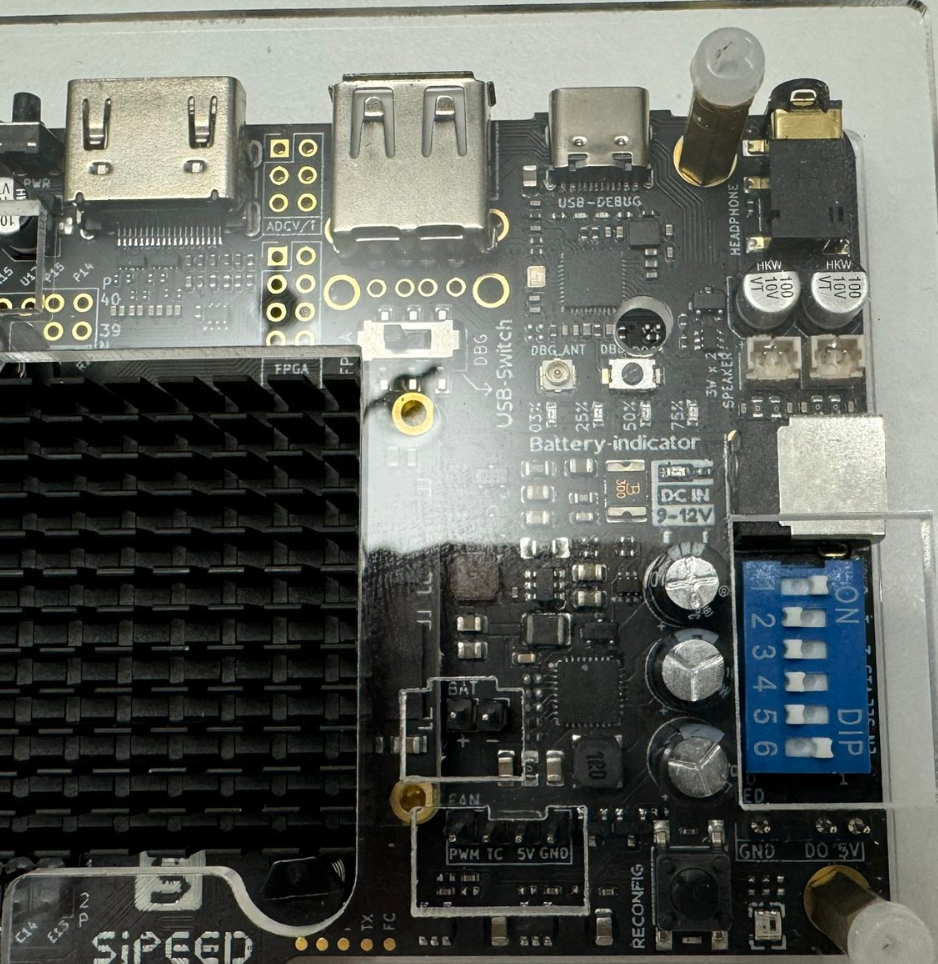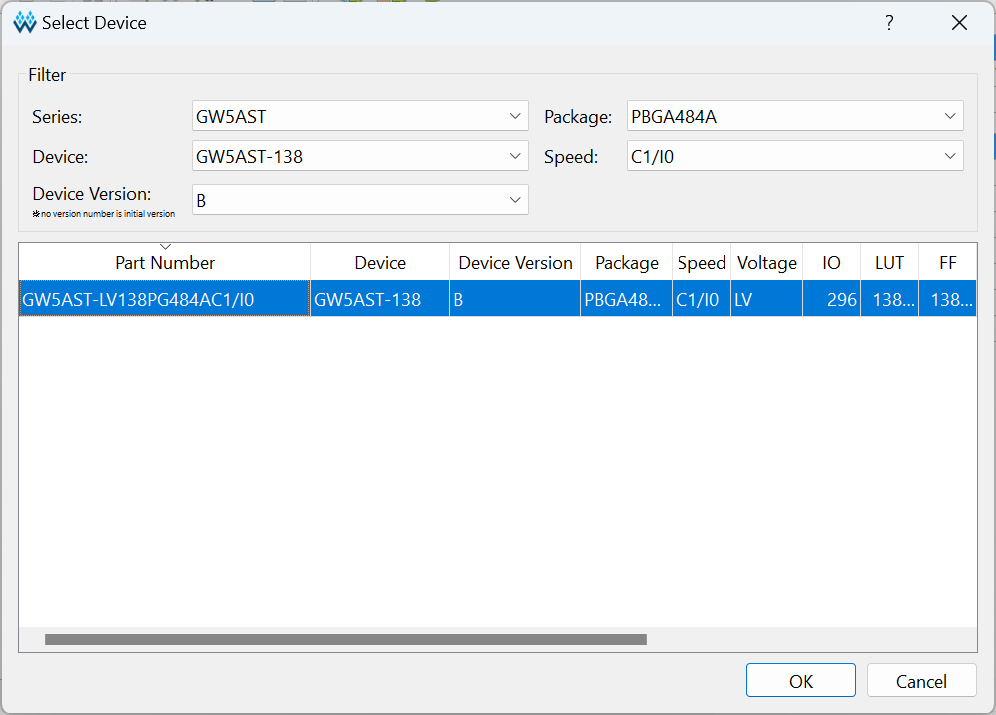Tang Mega 138K Dock
Update history
| Date | Version | Author | Update content |
|---|---|---|---|
| 2025-09-30 | v0.4 | Serika |
|
| 2025-01-24 | v0.3 | Serika |
|
| 2024-09-26 | v0.2 | Serika |
|
| 2024-06-26 | v0.1 | Serika |
|
Overview
Tang Mega 138K uses a 22nm process GW5AST-LV138PG484A FPGA chip, which has 138,240 lookup table units and nearly 300 DSP units. It contains eight high-speed transceivers with a speed range of 270Mbps ~ 8.0Gbps, suitable for transmitting data through high-speed ports such as PCIe. In addition, the chip contains a hard-core PCIe, which consumes better resources when using PCIe and achieves better performance. It is suitable for high-speed communication, protocol conversion, high-performance computing, and other occasions.
Compared to the 138K Pro Dock, the 138K Dock has a smaller size and a lower price, and it replaces the SFP transceiver with USB3 SS(5Gbps). This not only effectively reduces the cost of high-speed communication but also brings better versatility.
aliexpress purchase link: Click me
Board Features
- Large capacity LUT4
- Large capacity memory
- PCIe 2.0 x 4
- USB3.0 x 1(5Gbps)
- RISC-V hard core (AE350 @800MHz)
- HDMI TX/RX x 1
- Gigabit Ethernet x 1
- Onboard 3.7V li-on battery(1-Series) charge/discharge management
Product Appearance

Block Diagram
TBD
Hardware Parameters
SOM Board Parameters
| Item | Parameter | comment | ||||||||||||||||||||||||||||||||||
|---|---|---|---|---|---|---|---|---|---|---|---|---|---|---|---|---|---|---|---|---|---|---|---|---|---|---|---|---|---|---|---|---|---|---|---|---|
| FPGA Chip | GW5AST-LV138PG484A |
|
||||||||||||||||||||||||||||||||||
| Memory | 1GB DDR3 | 512MB x 2 | ||||||||||||||||||||||||||||||||||
| Flash | 128/64Mbits Flash x 1 | See How to Burn to Flash | ||||||||||||||||||||||||||||||||||
| Debug Interface | JTAG + UART | JST SH1.0 8-Pins CONN. | ||||||||||||||||||||||||||||||||||
| Overall Package | 35mm x 45mm Size | BTB CONN. Connects the SOM and the Dock Board |
Note: 128Mbits Flash version available with the Anniversary Update (Oct. 2025) and for all later releases.
Dock board Parameters
| Item | Quantity | Remarks |
|---|---|---|
| LEDs | 4+8 | 4x Battery-Indicator+ 8x PMOD_LED |
| WS2812 | 1 | The WS2812 & aRGB strip CONN. share the same pin |
| Buttons | 3+1 | 3x User-KEY + 1x Reconfig-KEY |
| PCIe | 1 | 1-lane @ 5Gbps |
| USB3 | 1 | CH569 16bit HSPI, SuperSpeed @ 5Gbps |
| Ethernet | 1 | 1000Mbps Ethernet |
| DVI(HDMI) | 1 | DVI supports both RX and TX |
| PMOD | 2 | Multiplexed with the the DVP CONN. & 2x20P header at the top of the Dock board |
| ADC | 2 | 2x differential input channels |
| DVP Interface | 1 | Multiplexed with the the PMOD & 2x20P header at the top of the Dock board |
| RGB Interface | 1 | Supports RGB888 screen |
| MIC ARRAY Interface | 1 | Supports Sipeed 6+1 microphone array |
| SD Slot | 1 | 1-bit SDIO/MMC or SPI mode |
| BATT CONN. | 1 | Supports 3.7V li-on battery, with built-in charge management |
| PWM FAN CONN. | 1 | Supports PWM fan with TACHO |
| Speaker CONN. | 2 | Support stereo output, 2x 3W Speaker |
| 3.5mm Headphone CONN. | 1 | Supports stereo output, without Mic |
| MS5351 | 1 | Provides RefClk for Serdes; control output via onboard UART |
| USB JTAG & UART | 1 | Supports FPGA programming and provides UART function |
| 2x20P headers | 2 | 2x20P header at the top of the Dock board multiplexed with the the PMOD & DVP CONN. |
| Power button | 1 | Press and hold for 2 seconds to toggle power state |
| 12V DC | 1 | DC5521 |
Hardware Resources
Getting Started
Note that 138K is currently supported by the educational version. You need to download the educational IDE version V1.9.9 or later. The commercial IDE requires V1.9.11.03 or later.
To download the bitstream to flash memory, we recommend using exFlash Erase, Program through GAO-Bridge 5A mode (V1.9.11.03 or later) or exFlash Erase, Program through GAO-Bridge Arora V (V1.
9.12 or later).
We recommend using the standalone 1.9.12 SP1 Programmer (also known as Gowin Programmer), which can be found on the Yunyuan Software Commercial Version page. This standalone programmer offers better compatibility.
If you need to use the commercial IDE, you can apply for a license on the Gaoyun official website or use the online license service provided by Sipeed. Select Floating License in the IDE and fill in the following information:
---Server 01---
ip: 106.55.34.119
port: 10559
Install IDE Click me
Example code github
Other Learning Resources
- Free online tutorial: Verilog Tutorial (Learn Verilog)
- Free online FPGA tutorial: Verilog (English website)
- Verilog practice website: HDLBits (English website)
- Online Gowin Semiconductor reference video tutorials: Click here
Communication Methods
- Reddit : reddit.com/r/GowinFPGA/
- Telegram : t.me/sipeed
- Discussion forum: maixhub.com/discussion
- QQ discussion group: 834585530
- Leave a message directly below this page
- GotoGitHub project pageand submit issues
- Business email : support@sipeed.com
Precautions
| Item | Precautions |
|---|---|
| Chip Model | The specific model of the FPGA chip used by Tang Mega 138K is GW5AST-LV138FPG676A. Please select the package model PBG484A & Device Version: B/C in the IDE. How to identify the device version |
| Static Electricity | Please avoid static electricity hitting the PCBA; release the static electricity from your hands before touching the PCBA. |
| Tolerance Voltage | When using GPIO pin headers for external communication, ensure that the IO voltage is 3.3V. Excessive voltage will permanently damage the PCBA. |
| FPC Socket | When connecting the FPC soft cable, please ensure that the cable is completely and correctly inserted into the socket without any deviation. |
| PCIE Gold Finger | When testing the PCIE gold finger, ensure that both the host and the board are in the off or unpowered state to avoid short-circuiting the gold finger due to displacement during the insertion process. |
| Plug and Unplug | Please completely power off before plugging and unplugging. |
| Avoid Short Circuit | Please avoid any liquid or metal touching the solder pads of the components on the PCBA during the power-on process, otherwise it may cause a short circuit and burn the PCBA. |
Contact
Tang Mega 138K can meet different needs of customers in various scenarios. For technical support and business cooperation, please contact support@sipeed.com
Frequently Asked Questions (FAQs)
The system does not recognize the onboard debugger
- Try connecting directly to the computer instead of through a USB HUB.
- Try using a better quality USB cable.
- Try another computer to rule out the computer being the problem.
- Try update to the latest firmware and try again.
The UART of the onboard debugger cannot be used
- Try reinstall FTDI drivers.
- IF the actual baudrate is always four times the set baudrate or the UART continuously outputs garbled characters. try update to the latest firmware and try again.
OpenFPGAloader not work
- Try update to the latest firmware and try again.
How to update the firmware for the onboard debugger
- See Update the debugger for details.
After powering on the board, only four indicator lights on the dockboard are on, the SOM indicator light is not on
- Please check if the board’s power has been turned on, press and hold the PWR button (next to the HDMI port) for 2 seconds to turn on the power.
After powering on the board, the Battery-Indicator light on the dcokboard is flashing
- This is normal behavior, usually, the last LED (near the 12V DC connector) is flashing;
- When the board is connected to a 3.7V lithium battery, these LEDs will serve as battery level indicators.
After pressing and holding the PWR button for 2 seconds, all the indicator lights on the dockboard turn off and then light up in sequence
- Check your power supply method, this situation means that the power supply is insufficient;
- Solutions (choose one):
a. Connect both the board’s USB-3.0 and USB-DEBUG for power supply, i.e., dual 5V USB power supply;
b. Connect a 12V DC power supply to the board, if using the USB-C to 12V DC connector from the accessories, a PD power source with 12V output capability is required;
c. Connect a 3.7V lithium battery to power the board, note that the battery voltage must be ≥3.6V and the continuous discharge capacity must be ≥600mA.
IDE cannot find the model GW5AST-LV138PG484A
- The GOWIN IDE version is too old. You must update to the commercial version IDE ≥ 1.9.9, or the
educational version IDE ≥ 1.9.11.03.
How to burn the bitstream to FLASH
- Setting the Programmer as shown in the figure below:

- Check the position of the DIP switch; the correct position is shown in the figure below:

No Response or Undesirable Pin Phenomenon After Burning
- First, ensure that the IDE has selected the correct model GW5AST-LV138PG484AC1/10; every parameter in the figure below MUST be consistent (for the Device Version,please select according to the actual situation).

- Then, check your code and the corresponding simulation waveforms to meet the requirements. The GAO tools in GOWIN IDE maybe helpful. For more information, please refer to the GOWIN document SUG100(require login).



 English
English Translate
Translate